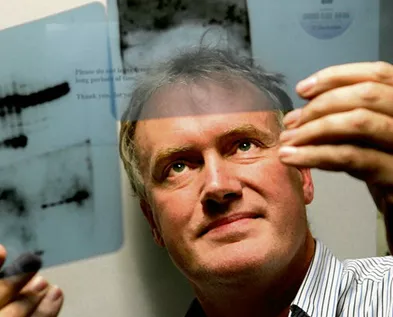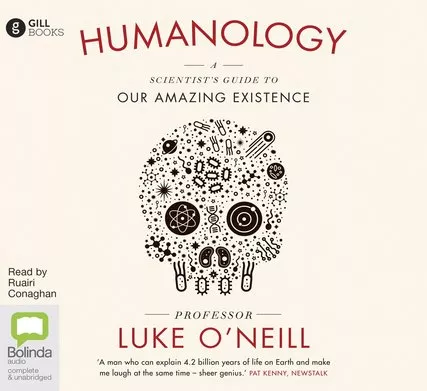Our amazing existence
Published on 18th January 2021

Professor Luke O'Neill is a rock star of these times so I thought I'd check if he had published any books and was delighted to find Humanology : a scientist's guide to our amazing existence.
It covers the period from the origin of life on Earth to the present and into a time when we will be extinct as a species but hopefully will have evolved into something even more amazing. The Professor includes many aspects of human life from love, religious belief, sexuality, humour, music, sleep, food, artificial intelligence, ageing and death in our future as a species. You don't have to be a genius to get the points which are made with Professor O'Neill's trademark humour and infectious enthusiasm.
My favourite takeaway from this book is the sad story of a menial robot in Australia that suicided by self-immolation on the hob of the cooker. I had to follow up on this story online and I'm sorry but I found it hilarious. I also like how the Professor makes a point of mentioning any Irish scientists who have contributed to the various fields of knowledge covered. For instance, did you know that the first two people who calculated the age of the Earth were Irish?
Their calculations were horribly wrong of course but still, fair play to them for trying. Another fun aspect of this book is the Professor's obvious fondness for music with dozens of song references included in the text. I wish I'd counted them as I was reading but readers might enjoy trying to spot and count them. In the chapter on sexuality for example he writes "it's a mixed up muddled up shook up world". He's around my age so I figured that one out fairly quickly.

The book is packed with quotable facts like the following. The Ebers Papyrus from 1550 BCE is the oldest medical text in existence and recommends Marijuana as a remedy for eye inflammation and Haemorrhoids. Our tendency to become addicted to Nicotine is inherited from Neanderthals. Labradors like classical music and dislike heavy metal. Protons in the Large Hadron Collider travel at 0.999999999 times the speed of light. Elephants in Thailand have composed music which human listeners guessed to be the work of John Cage. You couldn't make this stuff up.
If you like a concise, humorous, optimistic science book that doesn't leave you feeling dumb this one is for you.
Access eBooks/eAudiobooks on your phone, tablet or reader. Once you have installed the app, search for Dublin in the ‘Library’ field provided and then sign in using your library membership card number and PIN.
Watch our how to video on Borrowbox. Members of other library authorities will need to log in using a different link.
Submitted by Anne B. in Central Library.